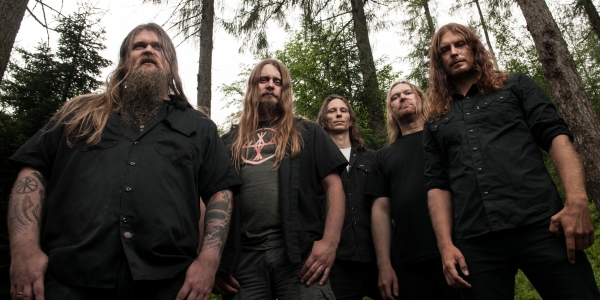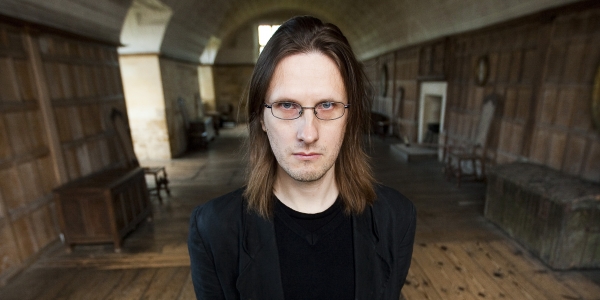“We’ve been trying seriously to come to Australia for a decade,” Ivar says in an encouraging tone. “In the last three years we found people to work with but it went belly up last minute. It’s a real feeling of relief having found a way to make it happen. We feel an extreme sense of excitement.”
Extremity is in Enslaved’s blood. Formed in June 1991 out of Bergen, Norway, Enslaved were one of a handful of Norwegian black metal “founding fathers” signed to the genre’s childhood home, Deathlike Silence Records. The label operated out the basement of Oslo record shop Helvete, the place where black metal was “born.” Alongside Mayhem, Darkthrone and Immortal, they stood not only as one of the scene’s founders but visionaries.
Ivar was barely fourteen when Enslaved came together. He learned to play guitar as the band matured, “playing the stuff over and over to ourselves,” Ivar recalls. “To make more complex music, we had to become a little bit better at playing.”
Enslaved gradually diluted “pure” blast beats and growling chainsaw riffs with ghostly moods and pillowy textures. They held their roots in dire and grey black metal and Enslaved gradually flowered into complex new forms and palettes.
“Listening to prog rock from the 70s has added to our music style and technique,” Ivar explains. “To realise some of the ideas that we found in bands like, say, Genesis, we had to expand somewhat on the metal techniques. It’s not enough to do the tremolo thing, the classic heavy metal thing. The disharmonies, the more out there stuff, you have to figure it out on guitar. But it’s an advantage being as heretical as we are towards musical theory, it intensifies the music.”
Their latest album RIITIIR stretched their musical grasp yet again. The title, loosely translated as “Ritual,” flashed like lightning to break people under a Twitter and Facebook stupor. In Ivar’s view, humans need real, tangible ritual like we need food and shelter.
“I think it’s present all over the place, because in our daily lives we’re building these small rituals for ourselves,” Ivar says, sounding scholarly. “They have them before they go on stage, before they take final exams, before sports matches. It becomes evident that these rituals are necessary. People don’t take this real life as more important than television or Facebook or whatever. It’s as if they’re in stasis or limbo between these social mediums.
“You don’t have to put on a pointy hat and act like Gandalf, but it’s more about being present in your own life.”
Listening to music isn’t a ritual any more either. People idly snack on music like an open bag of potato chips. Concerts are case and point; just look at the ratio of eyeballs locked on the stage compared with phones. Ivar’s feels upbeat about music returning as a cherished and honoured experience.
“That’s what you see in Scandinavia and it’s happening all over the world,” he says confidently. “Music is going to come back to the ritual. The people are sensing that there’s something lacking. Even the youngsters are realising that they’re missing a non-tangible part of music. They’re missing the ritual of going to the store, putting on the vinyl. When they do that, they feel like they’ve been cheated out of something when they were just given MP3s. They realise it’s so much more than the soundwaves and the bits.”
Society might’ve have thrown ritual out along with their CD players, but dedicated fans keep the rites of old burning with music.
“A lot of fans hang out for a new album when it comes out and they jump on a plane to spend four years of hard earned wages following bands around. We’ve lost religion; we’ve lost so many things. But music is one of the more meaningful things a young person can get involved with.”
BY TOM VALCANIS







